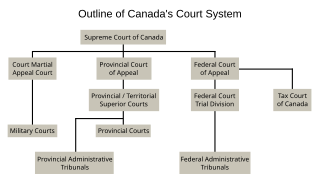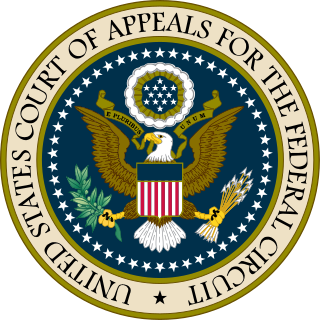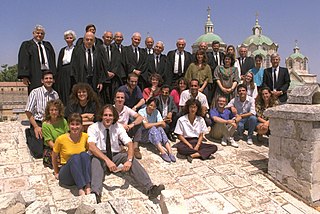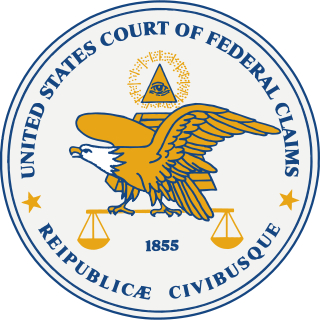
The United States courts of appeals or circuit courts are the intermediate appellate courts of the United States federal court system. A court of appeals decides appeals from the district courts within its federal judicial circuit, and in some instances from other designated federal courts and administrative agencies.

The United States Court of Appeals for the Ninth Circuit is a court of appeal that has appellate jurisdiction over the district courts in the following districts:

The United States Court of Appeals for the Third Circuit is a federal court with appellate jurisdiction over the district courts for the following districts:

The United States Court of Appeals for the Seventh Circuit is a federal court with appellate jurisdiction over the courts in the following districts:

The United States Court of Appeals for the Tenth Circuit is a federal court with appellate jurisdiction over the district courts in the following districts:

The United States Court of Appeals for the District of Columbia Circuit known informally as the D.C. Circuit, is the federal appellate court for the U.S. District Court for the District of Columbia. Appeals from the D.C. Circuit, as with all U.S. Courts of Appeals, are heard on a discretionary basis by the Supreme Court. It should not be confused with the United States Court of Appeals for the Federal Circuit, which is limited in jurisdiction by subject matter rather than geography, or with the District of Columbia Court of Appeals, which is roughly equivalent to a state supreme court in the District of Columbia, and was established in 1970 to relieve the D.C. Circuit from having to take appeals from the local D.C. trial court.

Judiciary of Malaysia is largely centralised despite Malaysia's federal constitution, heavily influenced by the English common law, as well as Islamic jurisprudence.

The court system of Canada forms the judicial branch of government, formally known as "The Queen on the Bench", which interprets the law and is made up of many courts differing in levels of legal superiority and separated by jurisdiction. Some of the courts are federal in nature, while others are provincial or territorial.

The United States Court of Appeals for the Federal Circuit is a United States court of appeals headquartered in Washington, D.C. The court was created by Congress with passage of the Federal Courts Improvement Act of 1982, which merged the United States Court of Customs and Patent Appeals and the appellate division of the United States Court of Claims, making the judges of the former courts into circuit judges. The Federal Circuit is particularly known for its decisions on patent law, as it is the only appellate-level court with the jurisdiction to hear patent case appeals.

The federal judiciary of the United States is one of the three branches of the federal government of the United States organized under the United States Constitution and laws of the federal government. Article III of the Constitution requires the establishment of a Supreme Court and permits the Congress to create other federal courts, and place limitations on their jurisdiction. Article III federal judges are appointed by the President with the consent of the Senate to serve until they resign, are impeached and convicted, retire, or die.

A law clerk or a judicial clerk is an individual—generally an attorney—who provides direct assistance and counsel to a judge in making legal determinations and in writing opinions by researching issues before the court. Judicial clerks often play significant roles in the formation of case law through their influence upon judges' decisions. Judicial clerks should not be confused with legal clerks, court clerks, or courtroom deputies who only provide secretarial and administrative support to attorneys and/or judges.

The University of Virginia School of Law was founded in Charlottesville in 1819 by Thomas Jefferson as one of the original subjects taught at his "academical village," the University of Virginia. Virginia Law is the fourth-oldest active law school in the United States and the second-oldest continuously operating law school. The law school offers the J.D., LL.M., and S.J.D. degrees in law and hosts visiting scholars, visiting researchers and a number of legal research centers.

The judiciary of Australia comprises judges who sit in federal courts and courts of the States and Territories of Australia. The High Court of Australia sits at the apex of the Australian court hierarchy as the ultimate court of appeal on matters of both federal and State law.

The United States Court of Federal Claims is a United States federal court that hears monetary claims against the U.S. government. It is the direct successor to the United States Court of Claims, which was founded in 1855, and is therefore a revised version of one of the oldest federal courts in the country.

Alice Moore Batchelder is an American attorney and jurist. She is currently a Senior United States Circuit Judge of the United States Court of Appeals for the Sixth Circuit. She served as chief judge from 2009 until 2014. She also was considered by President George W. Bush as a potential nominee for a United States Supreme Court seat that ultimately went to Justice Samuel Alito. Her husband William G. Batchelder is a former state Court of Appeals judge and a state legislator, who has served more than 30 years in the Ohio House of Representatives and served as Speaker of the House from 2011 until 2014.

Michael Boudin is a Senior United States Circuit Judge and former Chief Judge of the United States Court of Appeals for the First Circuit and a former United States District Judge of the United States District Court for the District of Columbia.
Diana Jane Gribbon Motz is a United States Circuit Judge of the United States Court of Appeals for the Fourth Circuit.

Bank of Montreal v Marcotte2014 SCC 55 is a ruling of the Supreme Court of Canada. Together with Amex Bank of Canada v. Adams2014 SCC 56 and Marcotte v. Fédération des caisses Desjardins du Québec2014 SCC 57, it represents a further development in Canadian constitutional jurisprudence on the doctrines of interjurisdictional immunity and paramountcy, together with significant clarifications on the law concerning class actions in the Province of Quebec, which is similar to that in operation in the common law provinces.

















